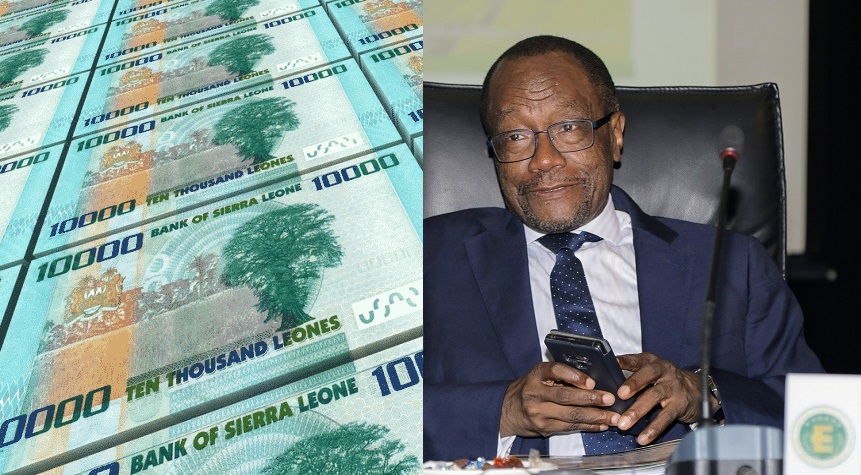The Governor of the Bank of Sierra Leone, Professor Kelfala Kallon has said that the best solution to address the current liquidity crisis in the country is through the promotion of the electronic payment system.
Kallon said this on Tuesday while speaking to the Parliamentary Oversight Committee on Finance on the current state of the country’s economy crisis particularly scarcity of leones which began since the festive season.
According to the Bank Governor, the rate of appreciation or depreciation of a country currency against that of its trading partner is typically equal to the difference in the inflation rate in the two countries, explaining that if Sierra Leone inflation rate exceeds that of the USA by 10 percent, the Leone is expected to depreciate against the dollar by 10 percent vice visa.
“I inherited an economy in which low economic growth and consequently high unemployment co-exist with high inflation’” he said, explaining that the Leone was depreciating as against other currencies at an alarming rate, which according to him resulted in the dollarization of the economy.
Speaking on the crisis befalling Sierra Leone’s currency, the Governor said that the Bank had earlier placed an order for 100 million bank notes which was delivered in March 2019. He emphasized that based on data at the time, the stock of new notes at the vault after receiving the first consignment on March 12th 2020 was sufficient to serve the cash needs of country until December 2020.
“The second consignment was therefore intended to be a buffer for any demand shortage during the year. However following the global outbreak of COVID-19 government put modalities in place to reduce the adverse effect on the people,” he said, explaining this created an increase in government expenditure on health care, social protection and measures to control the spread of the virus across the country.
The Bank Governor lamented the rate in which people hoard cash in a situation of economic uncertainty, despite the fact that currency notes on the vault on 29th April 2020 would be sufficient enough to fill the cash gap through December 2020. Under normal circumstances the Bank placed an emergency order for eight five million notes of various denominations on the same date to increase the buffer stock.
He mentioned that the order would have ben delivered on October 2020, which is six months after the ordering date, but due to the increase in orders by Commercial Banks complemented with the COVID-19 restrictions cause a very long queue and delay in delivering the notes, but that six million of the eight five million notes ordered by the Central Bank was delivered by chartered flight in three tranches in September 25th November 12th and December 11th 2020.
“The remaining 25 million notes of the order were received yesterday 18th January 2021,” he assured, explaining that at least 60 percent of all notes issued has been deposited by the Commercial Banks into their vault, according to him this redeposit minus the mutilated notes will then be issued to the public through the Commercial Banks.












He is sleeping on the job, he wouldn’t go scotch free if it were to be Ghana.
We want no occurrence of currency scarcity in our country.
Textbook idea. We have not built the infrastructure for a cashless society. Let’s develop and build the infrastructure first.